Discover This Anthro Life
This Anthro Life

 This Anthro Life
This Anthro Life
Author: Anthrocurious, LLC
Subscribed: 495Played: 6,125Subscribe
Share
© Anthrocurious, LLC
Description
This Anthro Life is the premiere go-to Anthropology Podcast that fuses human insights with cultural storytelling. We equip you with a deep understanding of the human experience to revolutionize your decision-making strategies and social impact. Head over to https://www.thisanthrolife.org to learn more. Spearheaded by acclaimed Anthropologist Dr. Adam Gamwell, This Anthro Life equips leaders, individuals, and organizations to shape a more compassionate future. We aim to broaden perspectives and fortify decision-making skills by fostering a profound understanding of culture coupled with the transformative power of storytelling. With curated conversations and thought-provoking discussions featuring humanity's top makers and minds, prepare to have your perspective transformed. This Anthro Life delves into various facets of human society—from examining the complexities of cultural identity to understanding the influence of technology on our everyday lives.
🌍 Change Your Perspective
Explore the complexities of life in a simple and engaging way. From AI and robotics revolutionizing the nature of work to emojis changing how we communicate, we delve into the forces shaping our world. No topic is off-limits—fossil fuels and their impact on our planet, the race to find alternative energy solutions, and so much more.
🎙️ Captivating Conversations
Go beyond surface-level discussions with deep dives into fascinating topics. Dr. Adam Gamwell's interviews are thought-provoking, enlightening, and always entertaining. Carefully crafted questions ensure engaging conversations that are free from jargon, making them accessible to listeners of all backgrounds.
✨ Key Takeaways
Gain valuable insights from each episode that you can apply to your own life. Discussing wisdom gained from the edges of society, we extract impactful quotes and actionable ideas from our guests. Expand your horizons and develop a fresh perspective on the challenges we face as individuals and as a global community.
🔊 Join the Community on Substack
Subscribe to "This Anthro Life" now for a weekly dose of eye-opening conversations. Share the podcast with friends and family who crave intellectual stimulation and diverse discussions. Be a part of the movement to change how we approach design, culture, business, and technology.
Beyond offering an engaging outlook on human experiences, This Anthro Life lends its anthropological expertise to businesses, organizations, and individuals. We help them navigate challenges with effective communication techniques and innovative problem-solving strategies rooted in a nuanced understanding of human behavior and social structures. Get in touch.
Join us on this captivating voyage of storytelling at the crossroads of culture, design, technology and business. We're excited to collaborate with you in shaping a more compassionate world through an enriched narrative of the human experience. Experience breakthrough perspectives on human experiences and come away equipped to make enriched decisions that contribute positively to your sphere. Join us as we shape a more connected, hopeful narrative - one human story at a time.
🌍 Change Your Perspective
Explore the complexities of life in a simple and engaging way. From AI and robotics revolutionizing the nature of work to emojis changing how we communicate, we delve into the forces shaping our world. No topic is off-limits—fossil fuels and their impact on our planet, the race to find alternative energy solutions, and so much more.
🎙️ Captivating Conversations
Go beyond surface-level discussions with deep dives into fascinating topics. Dr. Adam Gamwell's interviews are thought-provoking, enlightening, and always entertaining. Carefully crafted questions ensure engaging conversations that are free from jargon, making them accessible to listeners of all backgrounds.
✨ Key Takeaways
Gain valuable insights from each episode that you can apply to your own life. Discussing wisdom gained from the edges of society, we extract impactful quotes and actionable ideas from our guests. Expand your horizons and develop a fresh perspective on the challenges we face as individuals and as a global community.
🔊 Join the Community on Substack
Subscribe to "This Anthro Life" now for a weekly dose of eye-opening conversations. Share the podcast with friends and family who crave intellectual stimulation and diverse discussions. Be a part of the movement to change how we approach design, culture, business, and technology.
Beyond offering an engaging outlook on human experiences, This Anthro Life lends its anthropological expertise to businesses, organizations, and individuals. We help them navigate challenges with effective communication techniques and innovative problem-solving strategies rooted in a nuanced understanding of human behavior and social structures. Get in touch.
Join us on this captivating voyage of storytelling at the crossroads of culture, design, technology and business. We're excited to collaborate with you in shaping a more compassionate world through an enriched narrative of the human experience. Experience breakthrough perspectives on human experiences and come away equipped to make enriched decisions that contribute positively to your sphere. Join us as we shape a more connected, hopeful narrative - one human story at a time.
226 Episodes
Reverse
In this episode of This Anthro Life, host Adam Gamwell talks with anthropologist and design educator Michael Leube about how design, ethics, and anthropology intersect to shape the future of human behavior and culture. They dive deep into how design influences human decision-making, the role of evolutionary theory in design thinking, and the ethical responsibility of designers to consider sustainability and long-term consequences. Leube shares insights from his book The Future Designer, exploring topics like planned obsolescence, behavioral design, and the power of making sustainability both convenient and desirable.I'm Adam Gamwell, a cultural anthropologist and award-winning media creator, specializing in human-centered storytelling and experience design. With a background spanning startups, nonprofits, and global organizations, I apply anthropological insights to drive sustainable design solutions, ethical innovation, and business success. You can learn more about my work and get in touch for future projects through my website: https://www.anthrocurious.com/.About Michael Leube:Learn more about Michael Leube: https://anthropologylens.com/The Future Designer: https://books.google.com.ar/books/about/The_Future_Designer.html?id=KWIHEQAAQBAJ&source=kp_book_description&redir_esc=yAbout This Anthro Life: This Anthro Life is a thought-provoking podcast that explores the human side of design, culture, and business. Join us as we connect the dots between anthropology, technology, and the creative industries. Tune in to https://thisanthrolife.org and subscribe to our Substack at https://thisanthrolife.substack.com for more captivating episodes and engaging content.Follow This Anthro Life:LinkedIn: https://www.linkedin.com/company/this-anthro-life/Website: https://www.thisanthrolife.org/Substack: https://thisanthrolife.substack.com/Facebook: https://www.facebook.com/thisanthrolifeInstagram: https://www.instagram.com/thisanthrolife/
Today, we’re excited to bring you something a little different. Recently, we've been sharing a lot of episodes and shorts inspired by the work I’ve been doing alongside my colleague, Phil Searles, for Cultural Capitalist. In this special episode, we’ve compiled a "best of" collection, featuring full episode highlights and impactful quotes that have resonated with our audience and shifted their perspectives.We’ve selected key concepts that stood out to us and brought them together to showcase how these ideas intersect and build on one another. We hope you enjoy this curated episode, highlighting some of our most thought-provoking content.Full Episodes Included:What Makes Apple, Apple? The Michigan Wolverines Cultural Advantage The Value of Anthropology to Tech Investors About This Anthro Life This Anthro Life is a podcast that delves into the human side of technology, culture, and business. We explore captivating stories and connect them to the bigger picture of our lives.For more thought-provoking episodes and content, visit thisanthrolife.org and subscribe to our Substack at thisanthrolife.substack.com. To know more about the work of This Anthro Life host Adam Gamwell, visit anthrocurious.com.Follow This Anthro Life: Website: thisanthrolife.orgSubstack: thisanthrolife.substack.com Twitter: @thisanthrolifeInstagram: @thisanthrolife
In this episode of This Anthro Life, host Adam Gamwell talks with anthropologist Claudia Strauss about how #AI, #technology, and the #postpandemic world are reshaping the nature of work in America. They explore crucial topics such as the impact of declining birth rates, an aging population, and restrictive immigration policies on labor markets. Drawing from Strauss’s book, What Work Means Beyond the Puritan Work Ethic, they discuss changing worker attitudes, the rise of #remotework and the #gigeconomy, and challenge the conventional narratives around the #workethic. Together, they delve into how anthropology provides unique insights into #workplaceculture, the human side of technology, and the evolving definition of a "good job" in the modern economy.I'm Adam Gamwell as a cultural anthropologist and award-winning media creator, I specialize in storytelling. My diverse background spans startups, nonprofits, cultural organizations, and Fortune 1000 companies, focusing on applied strategy, experience design, and human insights. My approach blends experiential research, like engaging with Peruvian quinoa farmers for climate change initiatives, with cutting-edge tools like AI and trends foresight. By leveraging big data alongside traditional ethnography, I align human needs with business goals, ensuring projects resonate profoundly.About Claudia Strauss:https://www.claudiastrauss.org/ https://www.pitzer.edu/faculty-staff-directory/claudia-strauss https://soundcloud.com/1869thecuppodcast/1869-ep-150-claudia-strauss https://www.linkedin.com/in/claudia-strauss-94723835/ https://btlonline.org/author-asks-do-we-work-to-live-or-live-to-work/ About This Anthro LifeThis Anthro Life is a thought-provoking podcast that explores the human side of technology, culture, and business. We unravel fascinating narratives and connect them to the wider context of our lives. Tune in to https://thisanthrolife.org and subscribe to our Substack at https://thisanthrolife.substack.com for more captivating episodes and engaging content.Follow This Anthro Life:https://www.linkedin.com/company/this-anthro-life/https://www.thisanthrolife.org/ https://thisanthrolife.substack.com/ https://www.facebook.com/thisanthrolife https://www.instagram.com/thisanthrolife/
In this episode of This Anthro Life, we’ll dive into how anthropology is reshaping tech investment by examining human culture and its influence on innovation. You'll discover how the deep study of culture helps forecast market trends, understand AI (artificial intelligence) and its cultural implications, and inform smarter investment decisions. We’ll explore why private equity firms are hiring anthropologists and why venture capital should follow suit. With insights into consumer behavior, organizational dynamics, and cultural change, this episode delves into how ESG (Environmental, Social, and Governance) strategies are influenced by anthropological intelligence. We also cover the role of business strategy in navigating today’s technological landscape, exploring how cultural anthropology can reveal the symbolic value and market intelligence that form a company’s cultural moat. Featuring renowned anthropologists Genevieve Bell and Gillian Tett, we uncover why cultural intelligence is essential in our fast-evolving world.I'm Adam Gamwell as a cultural anthropologist and award-winning media creator, I specialize in storytelling. My diverse background spans startups, nonprofits, cultural organizations, and Fortune 1000 companies, focusing on applied strategy, experience design, and human insights. My approach blends experiential research, like engaging with Peruvian quinoa farmers for climate change initiatives, with cutting-edge tools like AI and trends foresight. By leveraging big data alongside traditional ethnography, I align human needs with business goals, ensuring projects resonate profoundly.About This Anthro LifeThis Anthro Life is a thought-provoking podcast that explores the human side of technology, culture, and business. We unravel fascinating narratives and connect them to the wider context of our lives. Tune in to https://thisanthrolife.org and subscribe to our Substack at https://thisanthrolife.substack.com for more captivating episodes and engaging content.Follow This Anthro Life:https://www.linkedin.com/company/this-anthro-life/ https://www.thisanthrolife.org/ https://thisanthrolife.substack.com/ https://www.facebook.com/thisanthrolife https://www.instagram.com/thisanthrolife/ Culture Capitalisthttps://culturecapitalist.substack.com/
Join us in this dynamic episode of This Anthro Life as we sit down with Shaun Carver, CEO of International House at UC Berkeley, to explore the art of building inclusive and vibrant campus communities. Dive into the rich history and transformative impact of I House, where fostering intercultural connections goes hand in hand with managing cultural diversity and navigating today's politically polarized landscape. Learn how promoting civil discourse, embracing free speech, and implementing inclusive policies can help create a thriving educational environment in a rapidly changing world. I'm Adam Gamwell as a cultural anthropologist and award-winning media creator, I specialize in storytelling. My diverse background spans startups, nonprofits, cultural organizations, and Fortune 1000 companies, focusing on applied strategy, experience design, and human insights. My approach blends experiential research, like engaging with Peruvian quinoa farmers for climate change initiatives, with cutting-edge tools like AI and trends foresight. By leveraging big data alongside traditional ethnography, I align human needs with business goals, ensuring projects resonate profoundly.Keywords: Community, Higher Education, Inclusivity, Diversity, I-House, International Students, Civility, Free Speech, Political Polarization, Conflict Resolution, Cultural Exchange, Nonprofit Organization, Student Housing, Intercultural Understanding, Global Education, Historical Context, Academic Environment, Global Community, Student Protests, Mental Health, Critical Thinking, Social Responsibility, Adaptive Learning, AnthropologyAbout Shaun Carverhttps://ihouse.berkeley.edu/ https://twitter.com/ihouseberkeley https://www.instagram.com/ihouseberkeley/ https://www.linkedin.com/company/international-house-at-uc-berkeley/ About This Anthro LifeThis Anthro Life is a thought-provoking podcast that explores the human side of technology, culture, and business. We unravel fascinating narratives and connect them to the wider context of our lives.Tune in to https://thisanthrolife.org and subscribe to our Substack at https://thisanthrolife.substack.com for more captivating episodes and engaging content. Follow This Anthro Life:https://www.linkedin.com/company/this-anthro-life/ https://www.thisanthrolife.org/ https://thisanthrolife.substack.com/ https://www.facebook.com/thisanthrolife/https://www.instagram.com/thisanthrolife/
Discover what sets the Michigan Wolverines apart in college football. In this episode of This Anthro Life, host Adam Gamwell explores the innovative cultural strategies implemented by head coach Jim Harbaugh that led to the Wolverines' 2024 National Championship victory. Learn how a player-led culture, distributed leadership, and sustainable success through cultural strengths created a resilient and dominant team. I'm Adam Gamwell as a cultural anthropologist and award-winning media creator, I specialize in storytelling. My diverse background spans startups, nonprofits, cultural organizations, and Fortune 1000 companies, focusing on applied strategy, experience design, and human insights. My approach blends experiential research, like engaging with Peruvian quinoa farmers for climate change initiatives, with cutting-edge tools like AI and trends foresight. By leveraging big data alongside traditional ethnography, I align human needs with business goals, ensuring projects resonate profoundly.Keywords: Michigan Wolverines, 2024 National Championship, College Football, Cultural Shift, Leadership Transitions, Player-led Culture, Distributed Leadership, Cultural Strategy, Team Culture, Player Empowerment, Sustainable Success, Anthropological Methods, Cultural Strengths, Adaptive Cultural LeadershipAbout This Anthro LifeThis Anthro Life is a thought-provoking podcast that explores the human side of technology, culture, and business. We unravel fascinating narratives and connect them to the wider context of our lives.Tune in to https://thisanthrolife.org and subscribe to our Substack at https://thisanthrolife.substack.com for more captivating episodes and engaging content.Follow This Anthro Life:https://www.linkedin.com/company/this-anthro-life/https://www.thisanthrolife.org/https://thisanthrolife.substack.com/https://www.facebook.com/thisanthrolifehttps://www.instagram.com/thisanthrolife/
In this episode of This AnthroLife, host Adam Gamwell dives deep into the concept of "cultural moats" and how tech giants like Apple leverage design, technology, and cultural influence to cultivate an intensely loyal customer base. Adam examines the subtle yet powerful symbols Apple uses. This strategy preserves Apple's unique cultural identity while sparking a competitive race among tech companies to replicate the blue bubble experience on Android. The episode also introduces semiotics—the study of symbols—and its critical role in business and marketing, illustrating how cultural symbols like Apple's evolve and shape consumer behavior.I'm Adam Gamwell as a cultural anthropologist and award-winning media creator, I specialize in storytelling. My diverse background spans startups, nonprofits, cultural organizations, and Fortune 1000 companies, focusing on applied strategy, experience design, and human insights. My approach blends experiential research, like engaging with Peruvian quinoa farmers for climate change initiatives, with cutting-edge tools like AI and trends foresight. By leveraging big data alongside traditional ethnography, I align human needs with business goals, ensuring projects resonate profoundly.Keywords: Cultural Moat, Apple, Android, User Experience, Symbolic Ecosystem, Integrated Technology, Loyal Customers, Brand Loyalty, Psychology of Branding, Tech Innovation, Apple Ecosystem, Rich Communication Services (RCS), Design Choices, Technology and Culture, Apple Messages, Antitrust Investigation, Semiotics, Symbolic Communication.About This Anthro Life This Anthro Life is a thought-provoking podcast that explores the human side of technology, culture, and business. We unravel fascinating narratives and connect them to the wider context of our lives.Tune in to https://thisanthrolife.org and subscribe to our Substack at https://thisanthrolife.substack.com for more captivating episodes and engaging content.
Join me in a captivating new series on This Anthro Life as I explore the diverse career paths for anthropology graduates, emphasizing the immense value of anthropological skills in consulting roles. In this episode, "Careers in Anthropology: Corporate Consulting," I delve into the unique expertise we anthropologists offer—such as ethnographic research, qualitative data analysis, and cross-cultural communication. I'll examine specific consulting roles, including user research and design, change management, and diversity, equity, and inclusion (DEI).Tune in for actionable tips on developing hard skills, showcasing soft skills, and pursuing internships or projects to kickstart your consulting career. Gain valuable insights and resources to leverage your anthropology degree in the corporate world.I'm Adam Gamwell as a cultural anthropologist and award-winning media creator, I specialize in storytelling. My diverse background spans startups, nonprofits, cultural organizations, and Fortune 1000 companies, focusing on applied strategy, experience design, and human insights. My approach blends experiential research, like engaging with Peruvian quinoa farmers for climate change initiatives, with cutting-edge tools like AI and trends foresight. By leveraging big data alongside traditional ethnography, I align human needs with business goals, ensuring projects resonate profoundly.Keywords: Anthropology careers, Corporate consulting, Anthropological skills, Ethnographic research, Qualitative data analysis, Cross-cultural communication, User research and design, Change management, Diversity, Launching a consulting career, Anthropology degree, Consulting roles for anthropologists, Hard skills for consultants, Soft skills for consultants, Anthropology graduates, Career tips for anthropologists, Anthropology consultingAbout This Anthro Life This Anthro Life is a thought-provoking podcast that explores the human side of technology, culture, and business. We unravel fascinating narratives and connect them to the wider context of our lives. Tune in to https://thisanthrolife.org and subscribe to our Substack at https://thisanthrolife.substack.com for more captivating episodes and engaging content.Follow This Anthro Life:https://www.linkedin.com/company/this-anthro-life/ https://www.thisanthrolife.org/ https://thisanthrolife.substack.com/ https://www.facebook.com/thisanthrolife https://www.instagram.com/thisanthrolife/
Join us on This Anthro Life podcast for an engaging discussion on The Future of Reading: AI and Literature with Vihar Desu, an entrepreneur and engineer at Tempus and the creator of summaries.co. Vihar shares his expertise in cancer genomics and AI, revealing the technical intricacies of developing accurate summaries and the challenges and opportunities this presents. We delve into the cultural shifts emerging from new technologies and discuss the potential implications for authors and researchers.Discover how AI is transforming content consumption, enhancing research capabilities, and shaping the future of AI-search. Join us on This Anthro Life for a deeper understanding of the evolving landscape of literature and the exciting advancements at the intersection of technology and reading.About This Anthro LifeThis Anthro Life is a thought-provoking podcast that explores the human side of technology, culture, and business. We unravel fascinating narratives and connect them to the wider context of our lives. Tune in to https://thisanthrolife.org and subscribe to our Substack at https://thisanthrolife.substack.com for more captivating episodes and engaging content.Follow Vihar Desu https://www.linkedin.com/in/vihar-desuhttps://x.com/vihardesuhttps://www.summaries.co/https://www.tempus.com/Follow This Anthro Life:https://www.linkedin.com/company/this-anthro-life/https://www.thisanthrolife.org/https://thisanthrolife.substack.com/https://www.facebook.com/thisanthrolifehttps://www.instagram.com/thisanthrolife/
Join us on This Anthro Life podcast for an enlightening conversation with Wynford Dore, a pioneering researcher in neuroplasticity. I'm Adam, your host, and in this episode, we explore Wynford's transformative journey, driven by a personal family tragedy that sparked his mission to understand and enhance brain function.Discover the remarkable power of neuroplasticity, especially for individuals with learning challenges like dyslexia and ADHD. Winfred shares insights on the intersection of culture, technology, and the human brain, revealing how new research could revolutionize education, mental health, and human potential.Learn how we can all improve our cognitive abilities, resilience, and emotional strength at any age. This episode offers a deep dive into the future of learning, bridging gaps, and expanding minds to redefine education and support neurodiversity.Keywords: Neuroplasticity, dyslexia, ADHD, cognitive abilities, resilience, emotional strength, culture, technology, human brain, transformative journey, education, mental health, human potential, learning challenges, future of learning, bridging gaps, expanding minds, neurodiversity, anthropologyAbout This Anthro LifeThis Anthro Life is a thought-provoking podcast that explores the human side of technology, culture, and business. We unravel fascinating narratives and connect them to the wider context of our lives. Tune in to https://thisanthrolife.org and subscribe to our Substack at https://thisanthrolife.substack.com for more captivating episodes and engaging content.Contact Wyndford Dore:https://www.zingperformance.com/https://www.instagram.com/wynforddore/https://www.facebook.com/wynforddore/?locale=en_GBhttps://www.youtube.com/channel/UCYxZPxGNuyY1oM4YaIQo8Nghttps://www.linkedin.com/in/braindevelopment/Follow This Anthro Life:https://www.linkedin.com/company/this-anthro-life/https://www.thisanthrolife.org/https://thisanthrolife.substack.com/https://www.facebook.com/thisanthrolifehttps://www.instagram.com/thisanthrolife/
Join us for a captivating conversation on neurodiversity in the workplace with Ludmila Praslova the author of 'The Canary Code.' I'm Adam, your host, and in this episode, we delve into the cultural and societal implications of neurodiversity, offering practical tools for leaders to foster inclusive work environments.We explore innovative strategies to embrace diverse talents, enhance intercultural relations, and promote psychological safety. Learn how customized job roles can boost creativity and productivity, benefiting both individuals and organizations.Whether you're an employee or a leader, discover actionable steps to champion neuroinclusion and reshape the future of work. This discussion highlights the importance of creating a workplace where everyone can thrive, emphasizing the value of diverse perspectives and experiences.Keywords: Neurodiversity, Cultural implications, Societal implications, Inclusive work environments, Practical tools for leaders, Diverse talents, Intercultural relations, Psychological safety, Customized job roles, Boost creativity, Enhance productivity, Employee tips, Leader strategies, Champion neuroinclusion, Future of work, Workplace diversity, Neuroinclusion strategies, AnthropologyAbout This Anthro Life This Anthro Life is a thought-provoking podcast that explores the human side of technology, culture, and business. We unravel fascinating narratives and connect them to the wider context of our lives. Tune in to https://thisanthrolife.org and subscribe to our Substack at https://thisanthrolife.substack.com for more captivating episodes and engaging content.Contact Ludmila Praslovahttps://www.linkedin.com/in/ludmila-praslova/https://thecanarycode.com/https://www.amazon.com/stores/Ludmila-N.-Praslova-PhD/author/B0CVG38WVDFollow This Anthro Life:https://www.linkedin.com/company/this-anthro-life/https://www.thisanthrolife.org/https://thisanthrolife.substack.com/https://www.facebook.com/thisanthrolifehttps://www.instagram.com/thisanthrolife/
Join us for a discussion on raising boys in today's world with a renowned journalist and author. I'm Adam, your host. In this episode, we explore masculinity, gender roles, and societal changes. Ruth Whippman explores the challenges of nurturing boys in today's society.We delve into topics like Me Too's effect on male socialization, emotional vulnerability, and empathy's role in nurturing well-rounded individuals. We discuss controversial topics, including the incel movement and Title IX systems.Learn the importance of encouraging in-person social interactions from a young age and helping boys navigate societal structures. The episode explores gender debates and highlights the need for open The Understanding how these dynamics impact boys today is crucial. Explore raising boys in a rapidly evolving society with us.I'm Adam Gamwell as a cultural anthropologist and award-winning media creator, I specialize in storytelling. My diverse background spans startups, nonprofits, cultural organizations, and Fortune 1000 companies, focusing on applied strategy, experience design, and human insights. My approach blends experiential research, like engaging with Peruvian quinoa farmers for climate change initiatives, with cutting-edge tools like AI and trends foresight. By leveraging big data alongside traditional ethnography, I align human needs with business goals, ensuring projects resonate profoundly.Contact Ruth Whippmanhttps://www.ruthwhippman.com/https://twitter.com/ruthwhippman?lang=enhttps://www.instagram.com/ruthwhippman/
Join us for an enlightening discussion on the transformation of digital news consumption with Alex, the visionary founder of Other Web. I'm Adam, your host, and in this episode, we dive into the innovative strategies that Other Web is implementing to reshape how we interact with online news and information. Alex shares his journey, inspired by his upbringing in the Soviet Union where access to accurate information was limited, and his mission to eradicate the digital 'junk' that clutters our feeds today. We explore Other Web's pioneering features, such as 'nutrition labels' for news, which help users gauge the quality and source of their information, and 'news concierge' services powered by AI for personalized content curation. Our conversation also covers the future of journalism in the AI era, the ethics of technological development, and the complexities of innovating within the current news industry business models. Discover how Other Web is striving to ensure that both content creators and consumers uphold their responsibilities in the digital age.Keywords: AI, News, Fake News, Digital Era, Digital Junk, Tech, Future, Anthropology, Consumption, Journalism, AI and NewsAbout This Anthro LifeThis Anthro Life is a thought-provoking podcast that explores the human side of technology, culture, and business. We unravel fascinating narratives and connect them to the wider context of our lives. Tune in to https://thisanthrolife.org and subscribe to our Substack at https://thisanthrolife.substack.com for more captivating episodes and engaging content.Contact Alex Finkhttps://www.linkedin.com/in/temuchin43/https://otherweb.com/https://podcasts.apple.com/us/podcast/the-other-web/id1661364043/
Join us for an intriguing discussion on the connection between law and human behavior with Dr. Mark, a distinguished forensic psychiatry specialist. I'm Adam, your host, and in this episode, we explore forensic psychiatry—a medical field that bridges legal systems and mental health. Dr. Mark explains the differences between treating psychiatrists and forensic psychiatric experts in the legal field. We discuss mental health assessments in legal contexts, psychiatric training evolution, and challenges of presenting evidence in court. Dr. Mark highlights the advantages of diverse group practice. Discover the crucial role of forensic psychiatry in the justice system and the need for effective communication and holistic mental health.Keywords:Forensic Psychiatry - Human Behavior - Legal Systems - Mental Health - Psychiatric Training - Legal Contexts - Psychiatric Evidence - Anthropology - Podcast - Essay - Group Practice - Justice System - Effective Communication - Holistic Health - Law Psychiatry - Forensic Expert - Mental Assessments - Medical Evolution - Psychiatry Follow This Anthro Life:https://www.linkedin.com/company/this-anthro-life/https://www.thisanthrolife.org/https://thisanthrolife.substack.com/https://www.facebook.com/thisanthrolifehttps://www.instagram.com/thisanthrolife/ Contac Mark Levy:https://fpamed.com/https://www.linkedin.com/in/mark-levy-md-83538213/
Delve into the world of software development, work culture, and the philosophy of 'good enoughness,' with Paula Bialski.I'm Adam Gamwell as a cultural anthropologist and award-winning media creator, I specialize in storytelling. My diverse background spans startups, nonprofits, cultural organizations, and Fortune 1000 companies, focusing on applied strategy, experience design, and human insights. My approach blends experiential research, like engaging with Peruvian quinoa farmers for climate change initiatives, with cutting-edge tools like AI and trends foresight. By leveraging big data alongside traditional ethnography, I align human needs with business goals, ensuring projects resonate profoundly.About This Anthro LifeThis Anthro Life is a thought-provoking podcast that explores the human side of technology, culture, and business. We unravel fascinating narratives and connect them to the wider context of our lives. Tune in to https://thisanthrolife.org and subscribe to our Substack at https://thisanthrolife.substack.com for more captivating episodes and engaging content.Keywords: software development, good enough-ness, maintenance, AI, work culture, legacy code, managers, engineers, agile, sustainability, anthropologyConnect with Paula Bialski:https://www.instagram.com/paulabialski/https://paulabialski.com/Follow This Anthro Life:https://www.linkedin.com/company/this-anthro-life/https://www.thisanthrolife.org/https://thisanthrolife.substack.com/https://www.facebook.com/thisanthrolifehttps://www.instagram.com/thisanthrolife/
In this podcast episode, Adam hosts Paul Austin, founder of Third Wave, to discuss his journey with psychedelics, microdosing, and the intersection with leadership and personal development. Paul shares his personal background, from growing up in a traditional Midwest home to experimenting with cannabis and psychedelics which led him to explore the boundaries of life and eventually start Third Wave.The conversation covers the impact of psychedelics on mental health, their ability to disrupt entrenched patterns, and their role in enhancing creativity, focus, and relational skills. Paul emphasizes the importance of safety, intention, and integration in psychedelic experiences, and discusses the future of psychedelic accessibility and legality in the U.S. and globally. The discussion also delves into microdosing protocols, the differences between LSD and psilocybin, and how these practices can benefit leaders by fostering neuroplasticity, courage, and a reevaluation of success.Finally, Paul shares his vision for the future of psychedelics, including creating accessible, secular, global retreat centers for psilocybin mushrooms, inspired by the free model of Vipassana meditation centers.I'm Adam Gamwell as a cultural anthropologist and award-winning media creator, I specialize in storytelling.My diverse background spans startups, nonprofits, cultural organizations, and Fortune 1000 companies, focusing on applied strategy, experience design, and human insights. My approach blends experiential research, like engaging with Peruvian quinoa farmers for climate change initiatives, with cutting-edge tools like AI and trends foresight.By leveraging big data alongside traditional ethnography, I align human needs with business goals, ensuring projects resonate profoundly. About This Anthro Life This Anthro Life is a thought-provoking podcast that explores the human side of technology, culture, and business. We unravel fascinating narratives and connect them to the wider context of our lives. Tune in to https://thisanthrolife.org and subscribe to our Substack at https://thisanthrolife.substack.com for more captivating episodes and engaging content.Time Stamps: 00:00 Intro02:40 The Origin Story of a Psychedelic Advocate09:30 The Cultural Shift in Psychedelic Perception15:20 Psychedelics in History and Modern Times22:21 Microdosing Explained: Protocols, Benefits, and Considerations29:14 The Rising Popularity of Microdosing in Modern Culture34:27 The Intersection of Spirituality and Psychedelics57:19 The Future of Psychedelics: Legalization and Cultural Shifts Keywords: microdosingAbout This Anthro Life: This Anthro Life is a thought-provoking podcast that explores the human side of technology, culture, and business. Hosted by Adam Gamwell, we unravel fascinating narratives and connect them to the wider context of our lives. Tune in to https://thisanthrolife.org and subscribe to our Substack at https://thisanthrolife.substack.com for more captivating episodes and engaging content. Connect with Fredrik ThomassenWebsite: https://www.superside.com/ LinkedIn: https://www.linkedin.com/in/fredrikthomassen/Instagram: https://www.instagram.com/supersidehq/ Twitter: https://twitter.com/f_thomassen?lang=en Connect with This Anthro Life:Instagram: https://www.instagram.com/thisanthrolife/ Facebook: https://www.facebook.com/thisanthrolife LinkedIn: https://www.linkedin.com/company/this-anthro-life-podcast/ This Anthro Life website: https://www.thisanthrolife.org/ Substack blog: https://thisanthrolife.substack.com
How can we democratize access to talent and foster equal opportunities?In this insightful episode of This Anthro Life, we delve into the transformative power of the COVID-19 pandemic on the shift to online work. We discuss the potential of remote work to create a more equal playing field in the job market, Fredrik sharing his experience of building Superside, a platform that helps marketing and creative teams overcome design bottlenecks. Through this insightful discussion, we explore how this transition not only enhances productivity but also levels the playing field for individuals worldwide.From the importance of speed and quality in creative endeavors to the pivotal role of values and psychological safety in organizational success, we unravel the keys to building a future where talent knows no bounds. Join the conversation as we explore how remote work, accelerated by the pandemic, is reshaping industries, amplifying creativity, and paving the way for inclusive and innovative organizations. Timestamps:01:40 Exploring impacts of the pandemic on remote work adoption02:51 Origin story of Superside and its mission04:22 Founder's background in marketing and identifying creative bottlenecks09:31 Spreading remote work to smaller markets around the world11:22 Remote work enabling access to specialized global talent12:01 Remote work reducing discrimination and enabling diversity17:25 Flaws in traditional resume screening and interviews22:08 Innovating better methods for skills and values testing26:29 Focusing on career growth opportunities at Superside30:50 Rapid growth and exceptionally low turnover at Superside34:20 Fostering psychological safety for creativity and truth-seeking38:42 Leadership modeling openness to criticism and dissent42:09 Universal principles and truth-seeking in quality designKey Takeaways:The internet and remote work can create fair opportunities by providing access to talent and removing geographical barriers.The COVID-19 pandemic has sped up the shift to remote work, demonstrating that people can be effective while working from home.Overcoming the traditional hurdles in creative processes can be achieved by utilizing online platforms like Superside to streamline design and marketing tasks.Establishing a diverse and inclusive company is not only morally sound but also results in improved performance and innovation.Evaluating values and cultural compatibility is essential in recruitment and team building, and this can be accomplished through structured assessments and standardized testing.About This Anthro Life: This Anthro Life is a thought-provoking podcast that explores the human side of technology, culture, and business. Hosted by Adam Gamwell, we unravel fascinating narratives and connect them to the wider context of our lives. Tune in to https://thisanthrolife.org and subscribe to our Substack at https://thisanthrolife.substack.com for more captivating episodes and engaging content. Connect with Fredrik ThomassenWebsite: https://www.superside.com/ LinkedIn: https://www.linkedin.com/in/fredrikthomassen/Instagram: https://www.instagram.com/supersidehq/ Twitter: https://twitter.com/f_thomassen?lang=en Connect with This Anthro Life:Instagram: https://www.instagram.com/thisanthrolife/ Facebook: https://www.facebook.com/thisanthrolife LinkedIn: https://www.linkedin.com/company/this-anthro-life-podcast/ This Anthro Life website: https://www.thisanthrolife.org/ Substack blog: https://thisanthrolife.substack.com
How do the hidden costs of technology, like social media and search engines, shape our lives in unforeseen ways?In this compelling episode of This Anthro Life, we engage with filmmaker David Donnelly, delving into the depths of his documentary "Cost of Convenience." Donnelly's exploration uncovers the intricate web of consequences spawned by technology, spotlighting the covert toll of social media and search engine usage. Through a narrative woven with two years of intensive interviews and research, Donnelly unveils the unseen impacts of our digital age. The conversation traverses the power dynamics inherent in data collection, emphasizing the imperative of transparency. We advocate for a cultural shift, calling for an evaluation of our relationship with technology and its pervasive influence on modern society.Explore the intricate repercussions of technology through David Donnelly's lens in "Cost of Convenience." Delve into two years of intensive research revealing unseen impacts.Timestamp: 0:00 The impact of digital technology on human experience, exploring themes of power, data collection, and mental health.06:44 Data collection and surveillance in the tech industry.14:27 The impact of technology on critical thinking and society.17:48 Interdisciplinary approach to understanding complex problems.23:10 The impact of algorithms on mental health and privacy.30:37 The impact of online interactions on human connection and well-being.33:28 The purpose of education and critical thinking.38:04 The impact of algorithms on society, including privacy, wealth inequality, and discrimination.43:47 AI bias, responsibility, and accountability in technology development.49:08 Tech's impact on society, including mental health, aging, and consciousness.Key takeawaysTechnology platforms that we use for free collect and sell our data, which can be used to predict our behavior more accurately than our minds.The lack of transparency in data collection and algorithmic decision-making gives those with access to the data a tremendous amount of power and influence.Our relationship with technology is causing a range of societal issues, including mental health problems, polarization, and misinformation.There is a need for a cultural paradigm shift and more informed citizenship to address the consequences of technology and advocate for transparency and control over data.About This Anthro Life:This Anthro Life is a thought-provoking podcast that explores the human side of technology, culture, and business. Hosted by Adam Gamwell, we unravel fascinating narratives and connect them to the wider context of our lives. Tune in to https://thisanthrolife.org and subscribe to our Substack at https://thisanthrolife.substack.com for more captivating episodes and engaging content. Connect with David Donnelly:Instagram: https://www.instagram.com/dav_donnelly/?hl=enTwitter: https://twitter.com/daviddonnelly?lang=en Connect with This Anthro Life:Instagram: https://www.instagram.com/thisanthrolife/ Facebook: https://www.facebook.com/thisanthrolife LinkedIn: https://www.linkedin.com/company/this-anthro-life-podcast/ This Anthro Life website: https://www.thisanthrolife.org/ Substack blog: https://thisanthrolife.substack.com
How do societal norms and personal experiences intersect in shaping our understanding of love and sexuality?In this insightful episode of This Anthro Life, we delve into transforming the landscape of Sexual Norms with Dr. Leanna Wolfe. We delve into the intricate connections between love, anthropology, and human desires. Dr. Wolfe’s memoir, "177 Lovers," serves as a catalyst, challenging conventional views on sexuality and relationships. They navigate the complex narratives surrounding virginity and parental sexual history, highlighting the discrepancies between societal expectations and lived realities. The conversation extends to the evolving landscape of sexual norms, including the rise of polyamory and its implications for intimacy and commitment. Dr. Wolfe’s insights on sexual tourism and changing attitudes toward sexual assault underscore the importance of cultural understanding and consent. Ultimately, they emphasize the necessity of embracing diverse experiences and truths in navigating the realm of sexuality.Join us in this intellectually rich conversation with Dr. Leanna Wolfe as we delve into the unexpected intersections of love, anthropology, and the raw data of our desires. Expand your understanding of human relationships and challenge societal normsTimestamps00:00 - Introduction to the episode and guest, Dr. Leanna Wolfe09:12 - The impact of family narratives on sexuality and the discovery of hidden truths16:27 - Exploring alternative ways of approaching adolescence and gender19:02 - Shifting cultural perspectives on gender and sexuality24:04 - The benefits of practicing polyamory for brain chemistry and excitement33:45 - Different configurations of polyamory and managing jealousy42:14 - The transactional nature of relationships and the importance of consent51:10 - Research challenges and the importance of open and honest conversations about sex56:50 - Challenges of moving away from addiction to meth and finding value in in-person connection1:01:33 - Wrapping up the conversation and thanking the guestKey Takeaways:Dr. Wolfe’s memoir, "177 Lovers," offers a unique perspective that challenges conventional norms of sexuality and explores the intricate intersections of love and anthropology.Societal narratives about parental sexual history and virginity may diverge from personal experiences, highlighting the complexity of cultural expectations.Polyamory, characterized by multiple partners, is gaining acceptance, offering both variety and stability in relationships.Sexual tourism raises ethical questions regarding consent, economic dynamics, and its impact on local communities.The #MeToo movement signals shifting attitudes toward sexual assault, emphasizing the importance of clear communication and respect for boundaries.Generational differences exist in understanding consent, with younger generations prioritizing open and honest communication in intimate encounters.About This Anthro Life Podcast:This Anthro Life is a thought-provoking podcast that explores the human side of technology, culture, and business. Hosted by Adam Gamwell, we unravel fascinating narratives and connect them to the wider context of our lives. Tune in to https://thisanthrolife.org and subscribe to our Substack at https://thisanthrolife.substack.com for more captivating episodes and engaging content. Connect with Dr. Leanne Wolfe:Website: https://www.drleannawolfe.com/ Connect with This Anthro Life:Instagram: https://www.instagram.com/thisanthrolife/ Facebook: https://www.facebook.com/thisanthrolife LinkedIn: https://www.linkedin.com/company/this-anthro-life-podcast/ This Anthro Life website: https://www.thisanthrolife.org/ Substack blog: https://thisanthrolife.substack.com
How can entrepreneurial spirit redefine traditional career paths and drive societal change through innovative collaboration?In this enlightening episode of This Anthro Life, inspired by "Venture Meets Mission," we engage with author Gupta to unravel the transformative potential of entrepreneurship. Gupta advocates for a nonlinear career path, urging individuals to become "dual citizens" in multiple sectors. He emphasizes trust-building between government and business, highlighting personalized entrepreneurship's role in creating meaningful impact. Gupta explores the synergy between venture capital and government collaboration to drive innovation and social entrepreneurship. His insights inspire a reimagining of traditional boundaries, focusing on mission-driven ventures. Join us in embracing this mindset for a brighter, more sustainable future.Join us in this enlightening discussion as we uncover the transformative potential of anthropology in shaping meaningful careers and fostering innovation in today's dynamic professional landscape.Timestamps:0:00 Intersection of entrepreneurship, technology, and government to address societal problems.2:48 Entrepreneurship, government, and social impact with a focus on intersectionality.6:32 Non-linear career paths and breaking down binary choices between profit and non-profit.11:35 Building trust between govt, business, and academia through dual citizenship 17:17 Personalizing entrepreneurship and its cultural significance.22:45 Entrepreneurship, uncertainty, and adaptability in a rapidly changing world.26:52 Gen Z's purpose-driven mindset and how it's shaping the workforce.33:33 Impact investing and bridging the digital divide.39:31 How the government and private sector can collaborate for success.41:57 Bridging gaps between entrepreneurship, government, and academia for societal impact.48:19 Entrepreneurship and societal mission, aligning purpose and profit for innovation and impact.Key takeaways: Nonlinear career paths and diverse experiences enhance problem-solving and innovation.Trust is vital for bridging partnerships between government and business.Entrepreneurship transcends company creation, fostering risk-taking and job creation.Mission-driven focus arises from contemporary global challenges like pandemics and environmental issues.Entrepreneurship intersecting with government yields impactful solutions.Examples like SpaceX and Moderna showcase impactful ventures born from this intersection.Mission-aligned venture capital can effectively address global challenges such as climate change and national security.About This Anthro Life:This Anthro Life is a thought-provoking podcast that explores the human side of technology, culture, and business. Hosted by Adam Gamwell, we unravel fascinating narratives and connect them to the wider context of our lives. Tune in to https://thisanthrolife.org and subscribe to our Substack at https://thisanthrolife.substack.com for more captivating episodes and engaging content. Connect with Arun Gupta:Website: https://noblereachfoundation.org/person/arun-gupta/ Linkedin: https://www.linkedin.com/in/arungupta23/ Twitter (X): https://twitter.com/arungupta?lang=en Connect with This Anthro Life:Instagram: https://www.instagram.com/thisanthrolife/ Facebook: https://www.facebook.com/thisanthrolife LinkedIn: https://www.linkedin.com/company/this-anthro-life-podcast/ This Anthro Life website: https://www.thisanthrolife.org/ Substack blog: https://thisanthrolife.substack.com







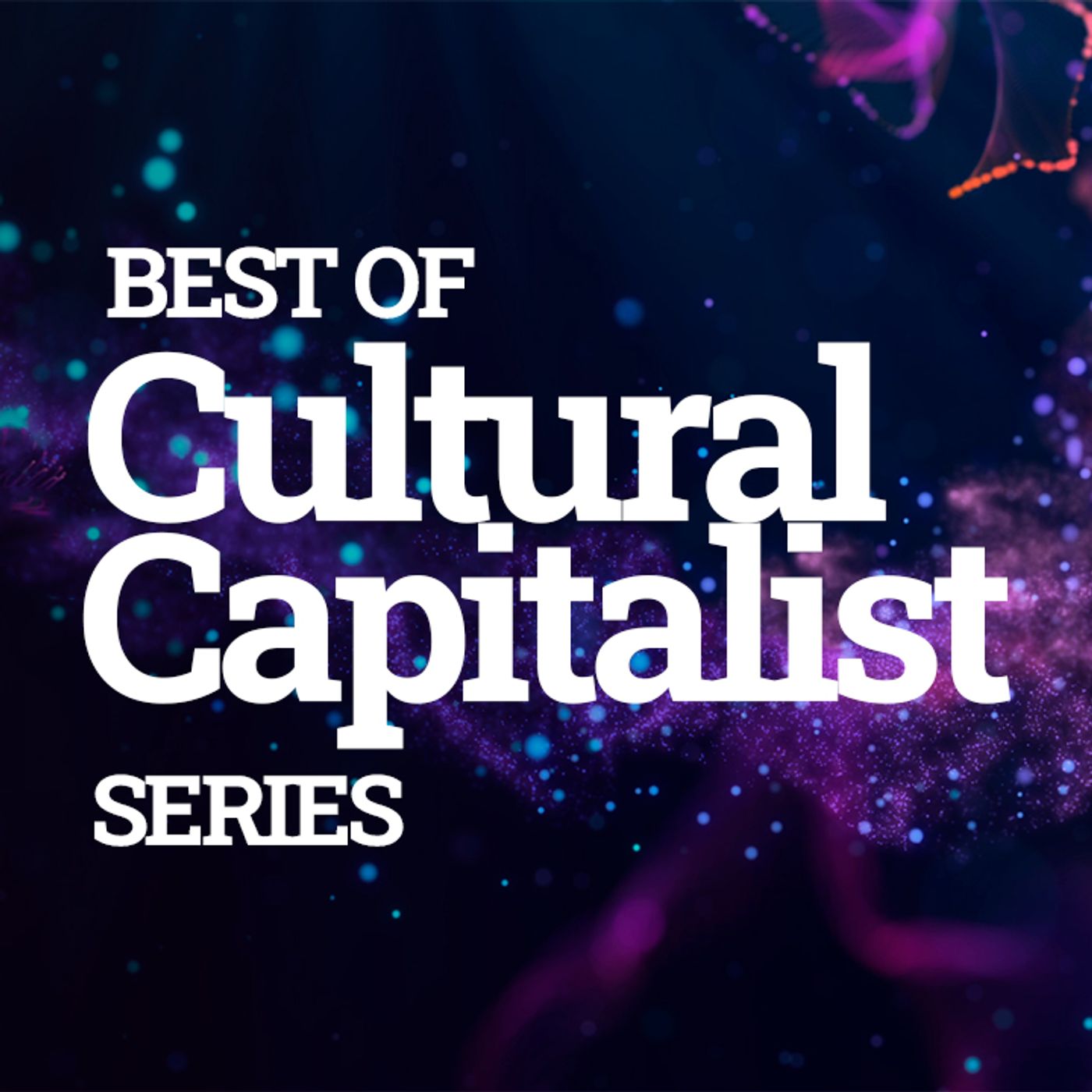
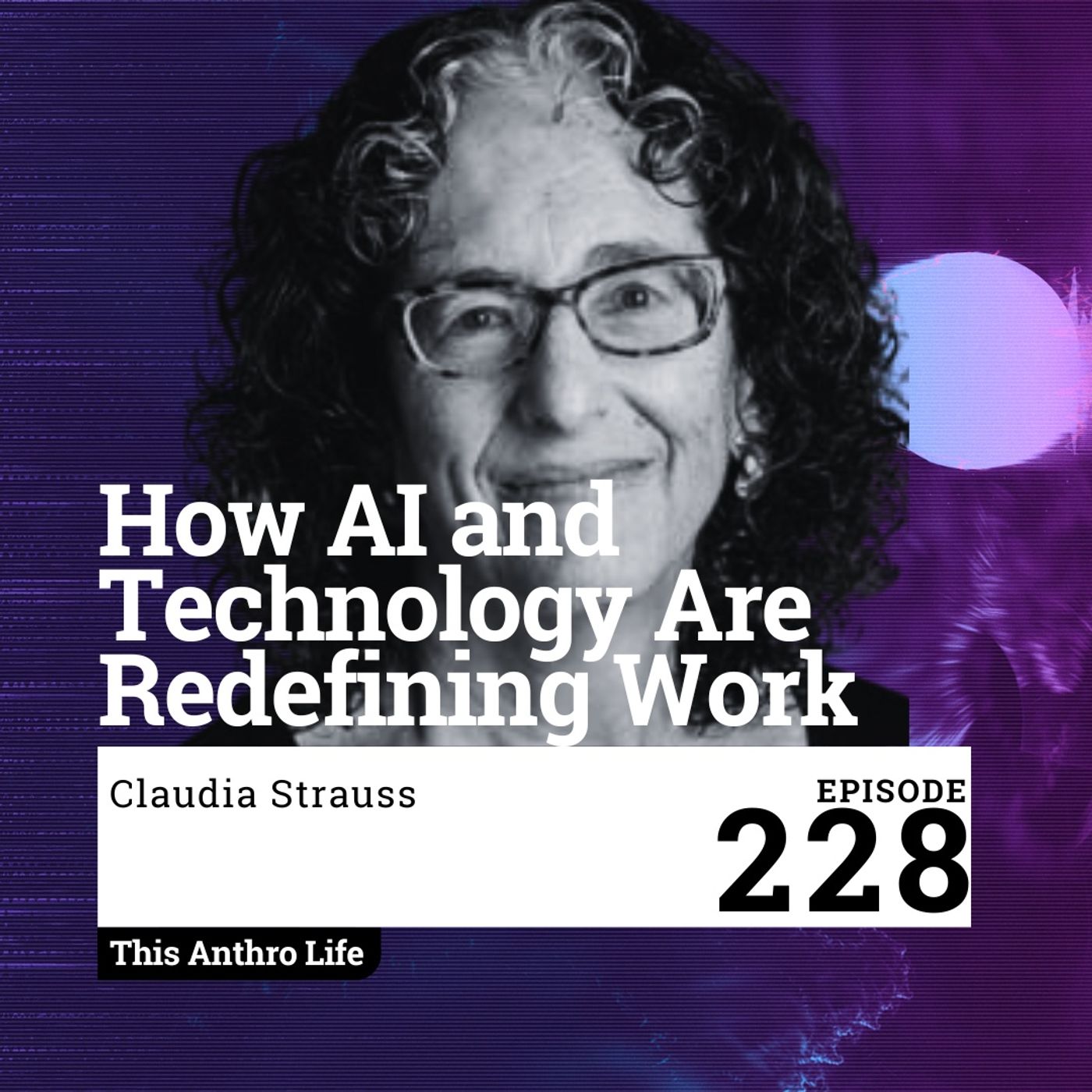
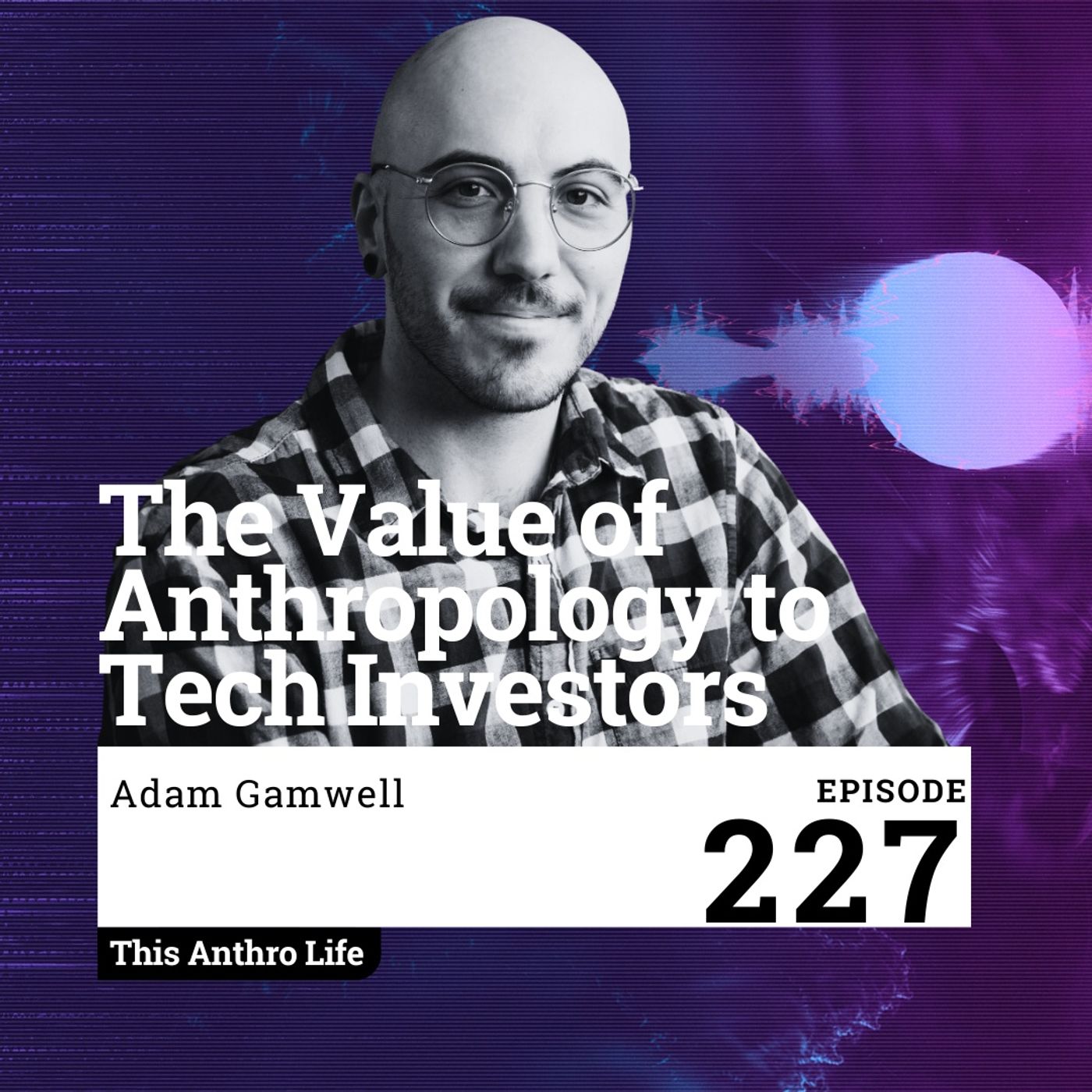
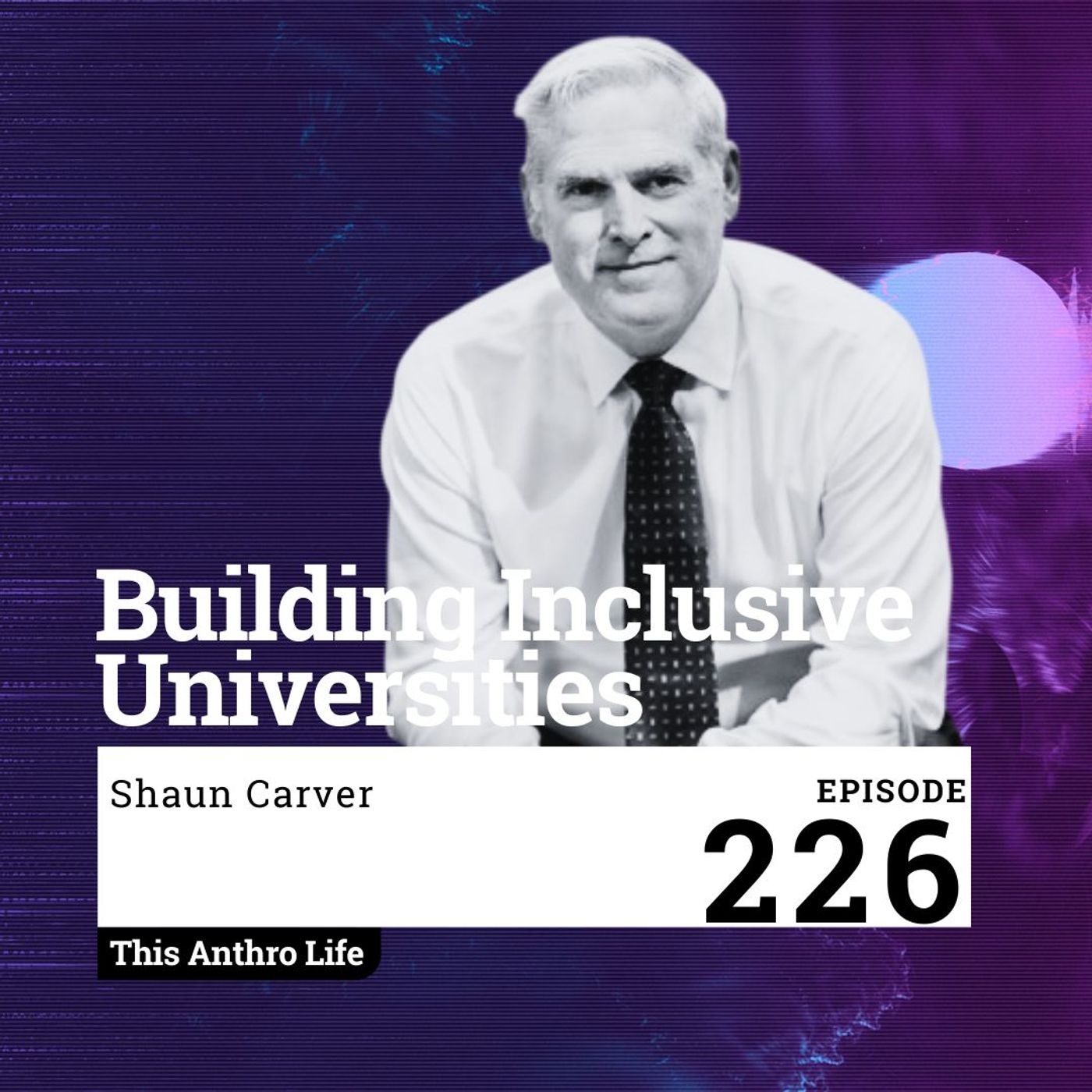
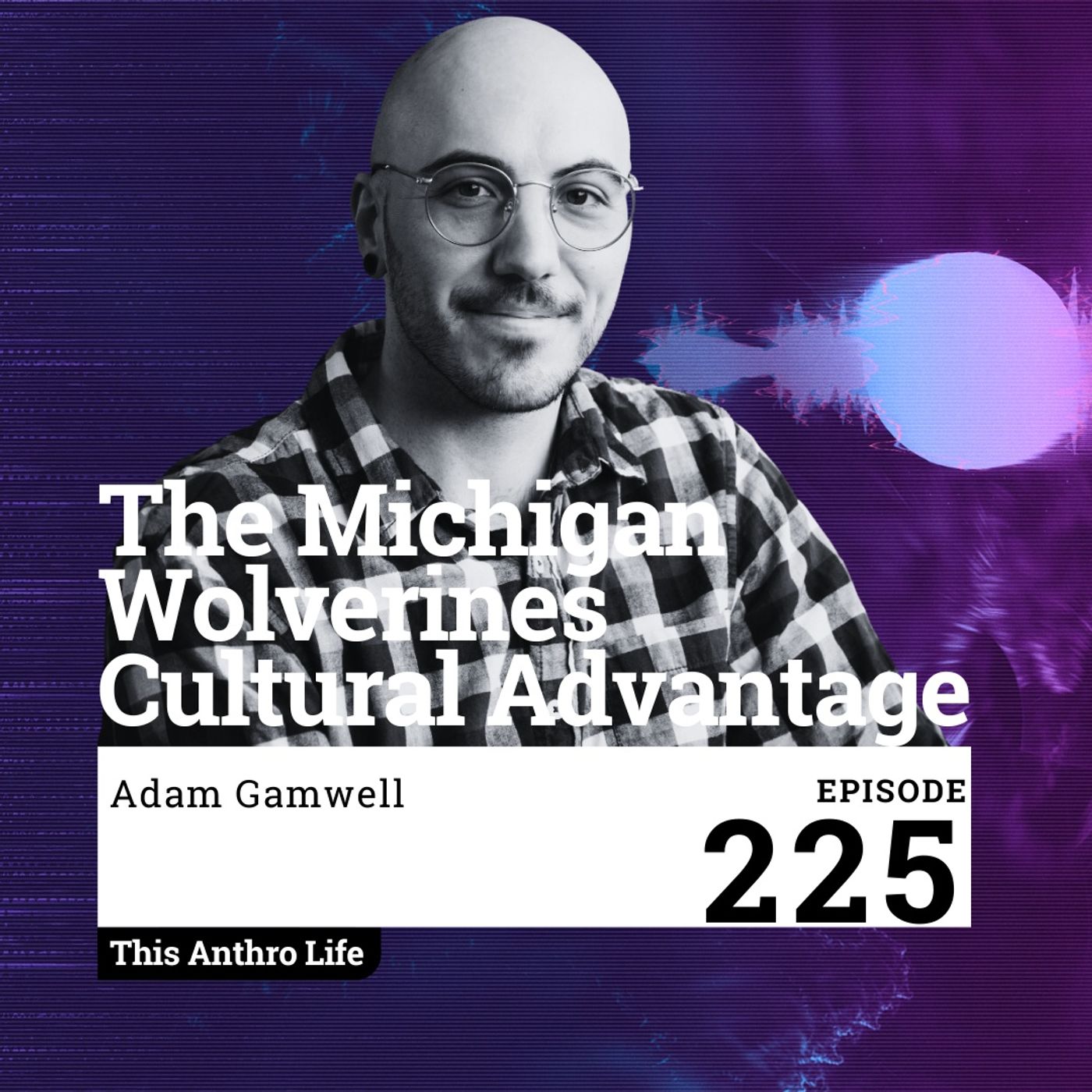
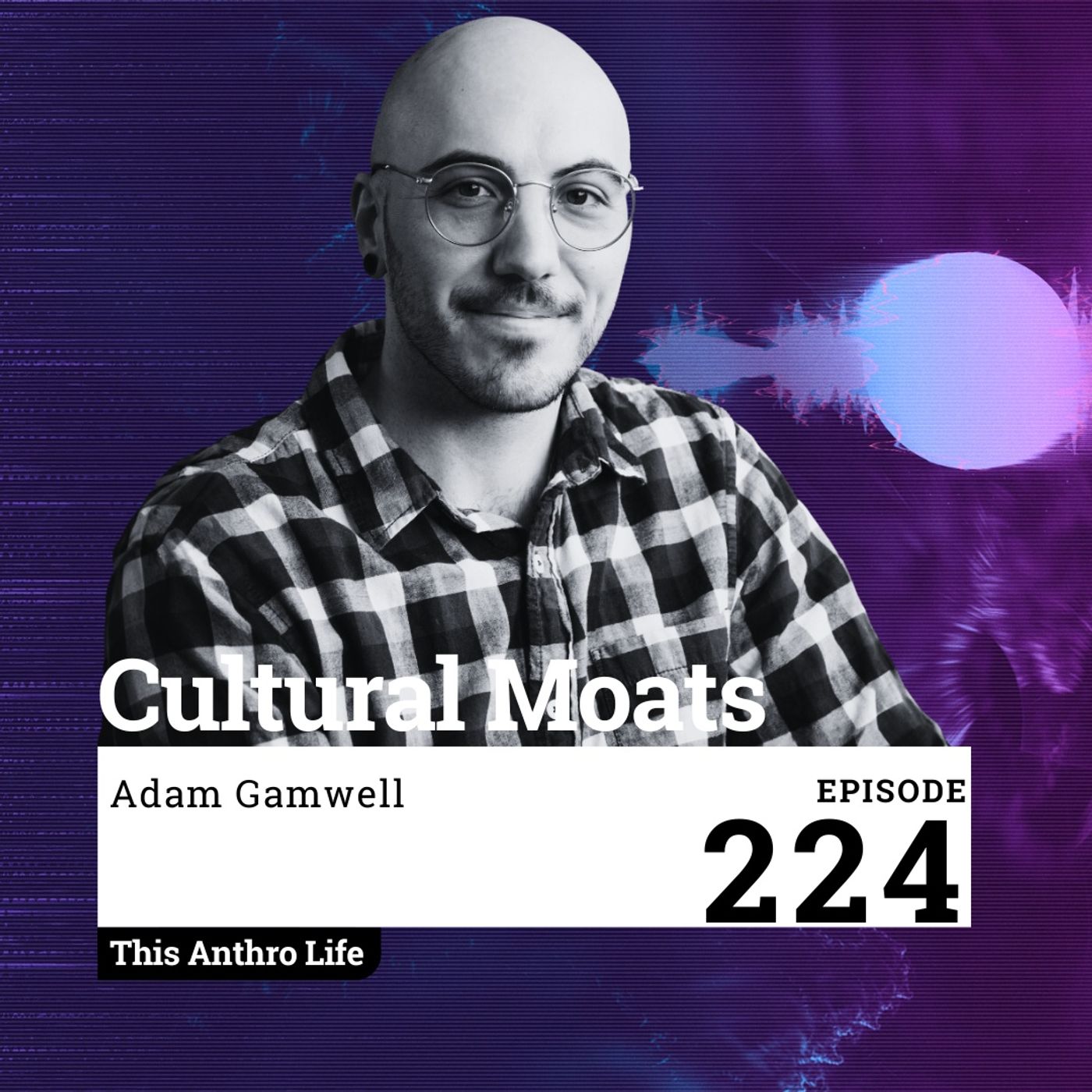
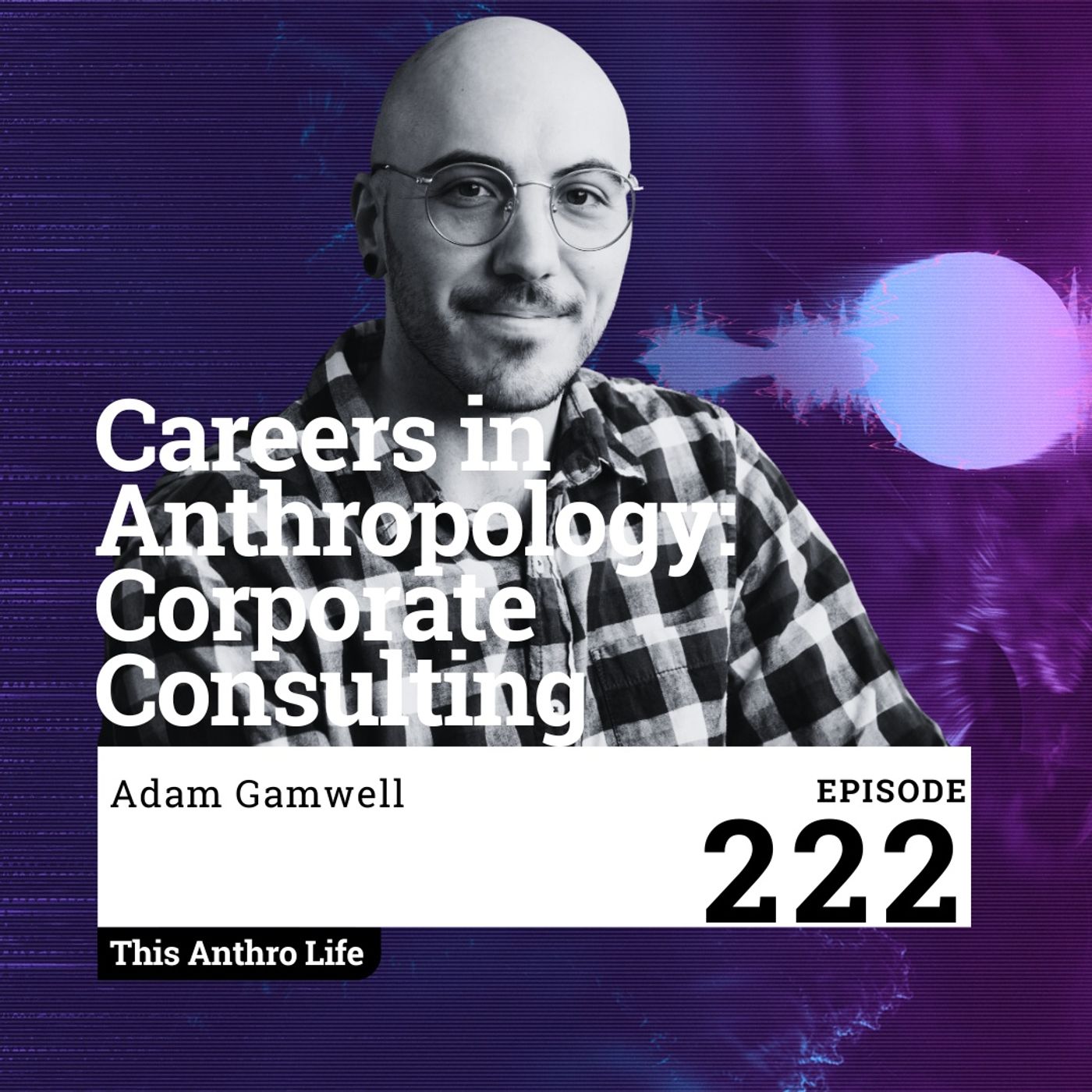
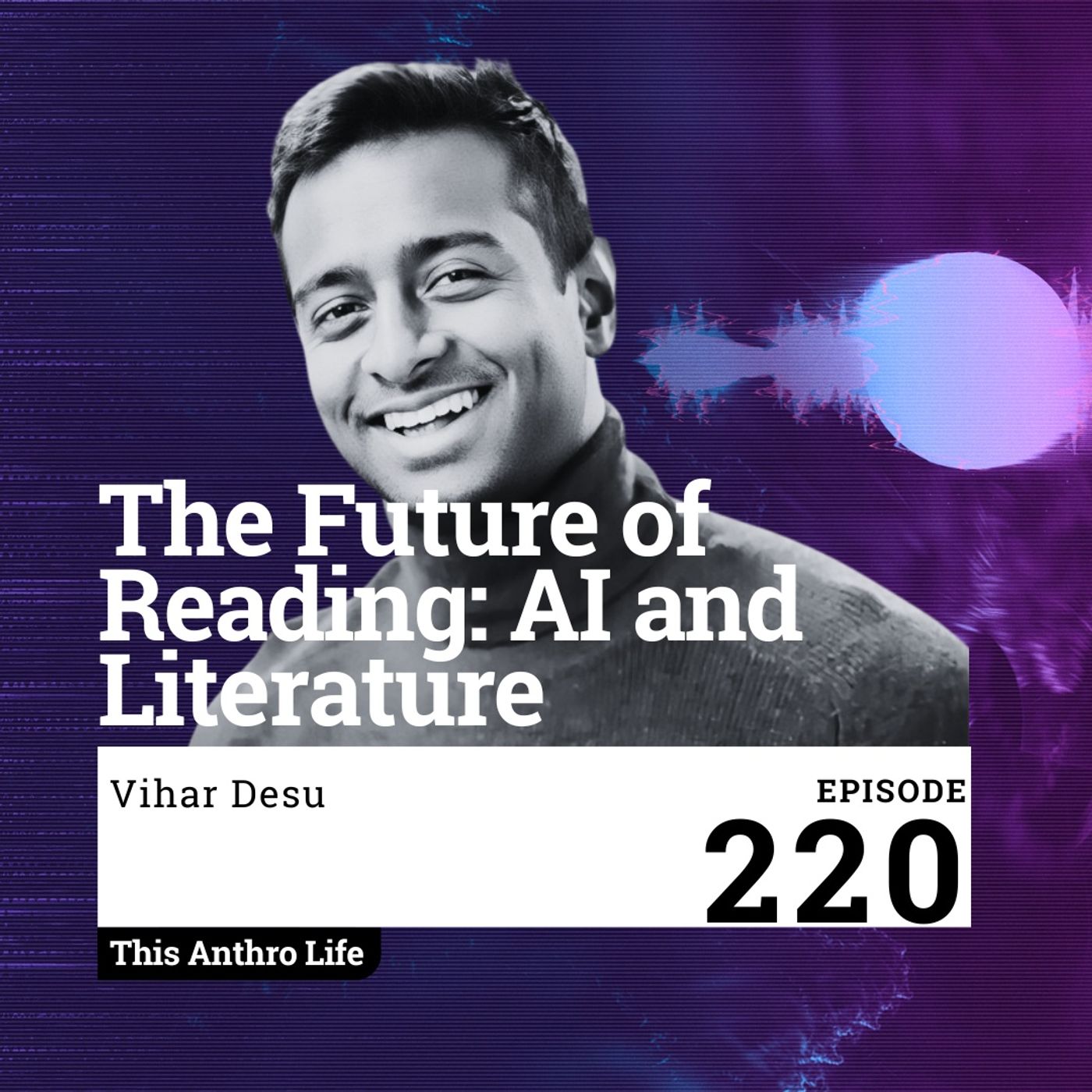
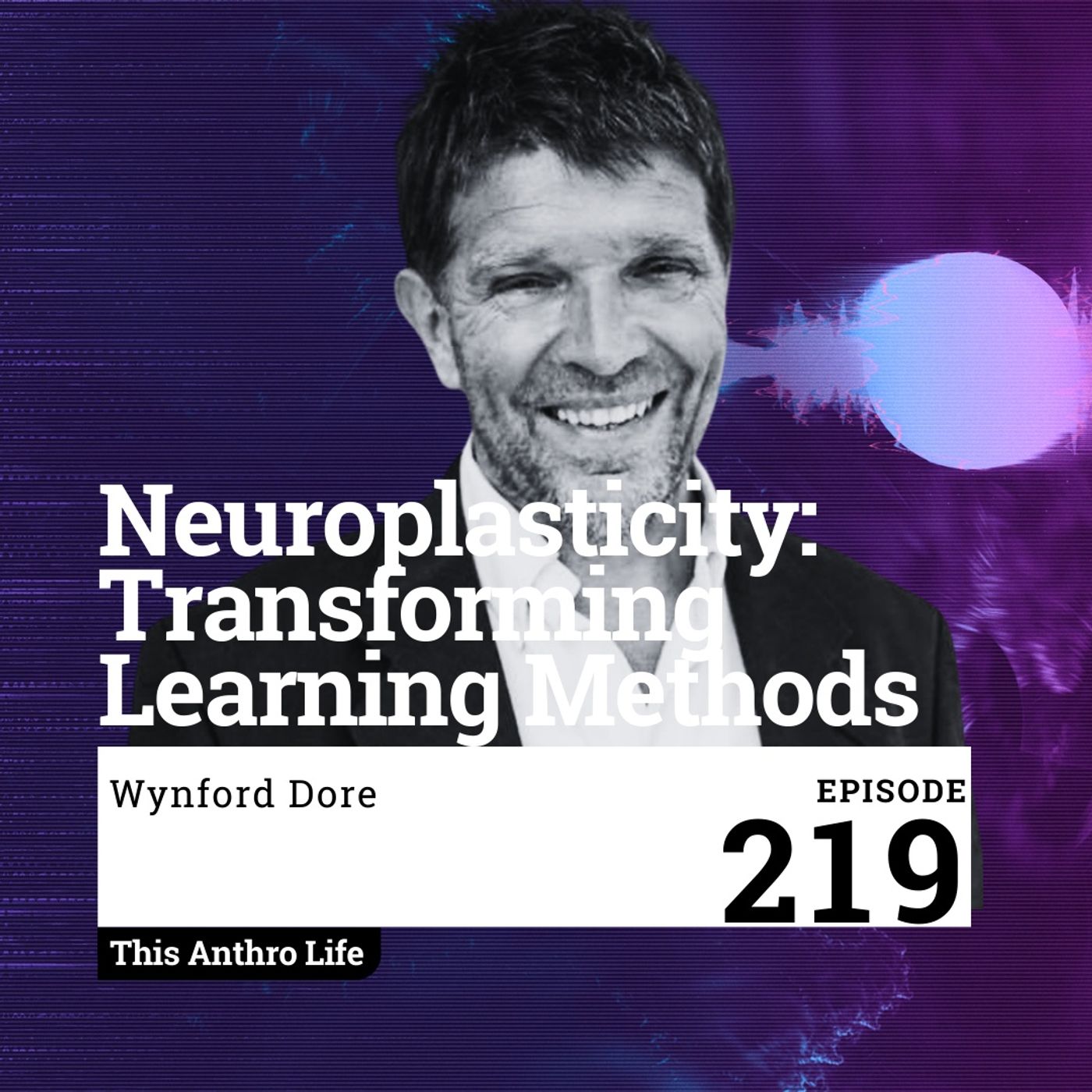
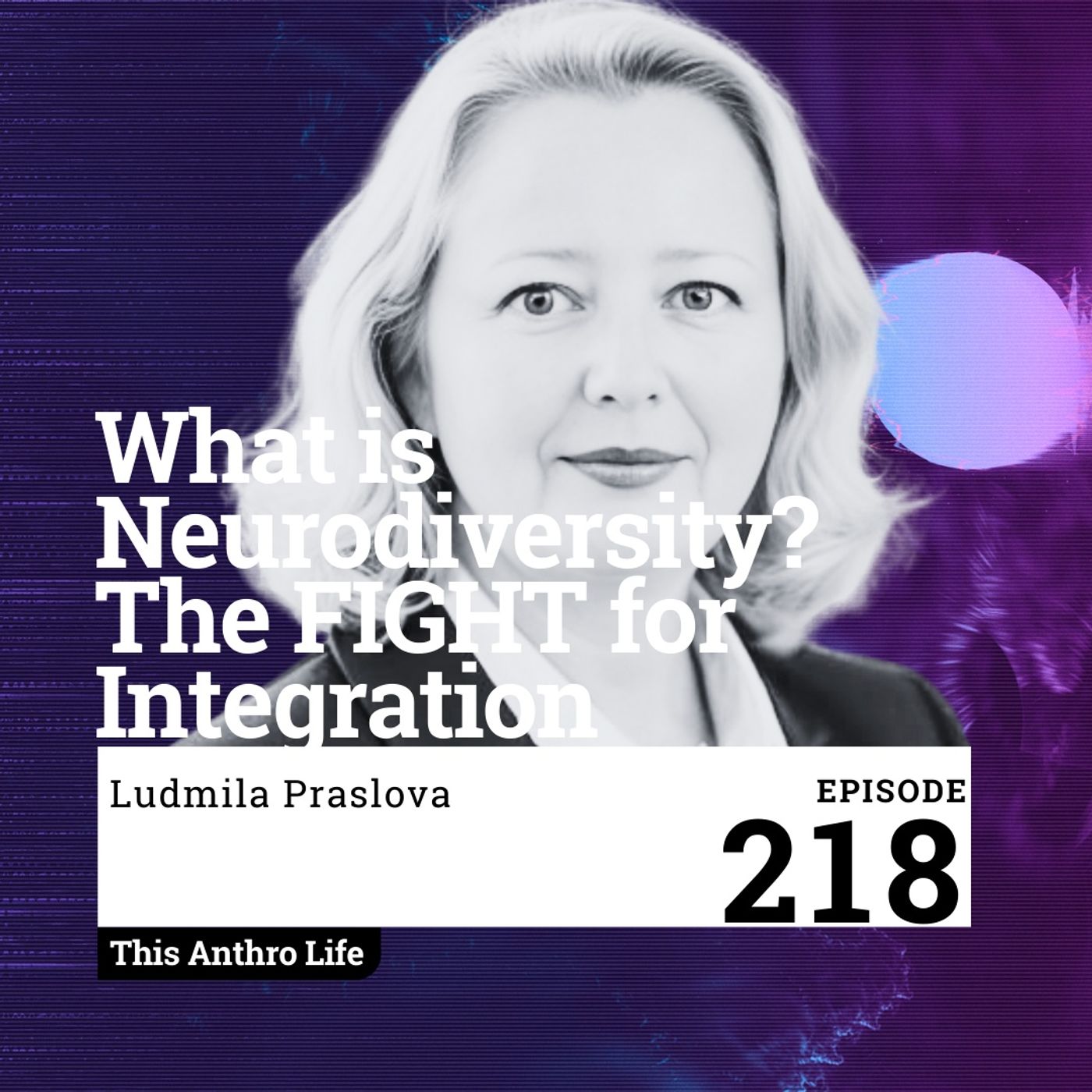

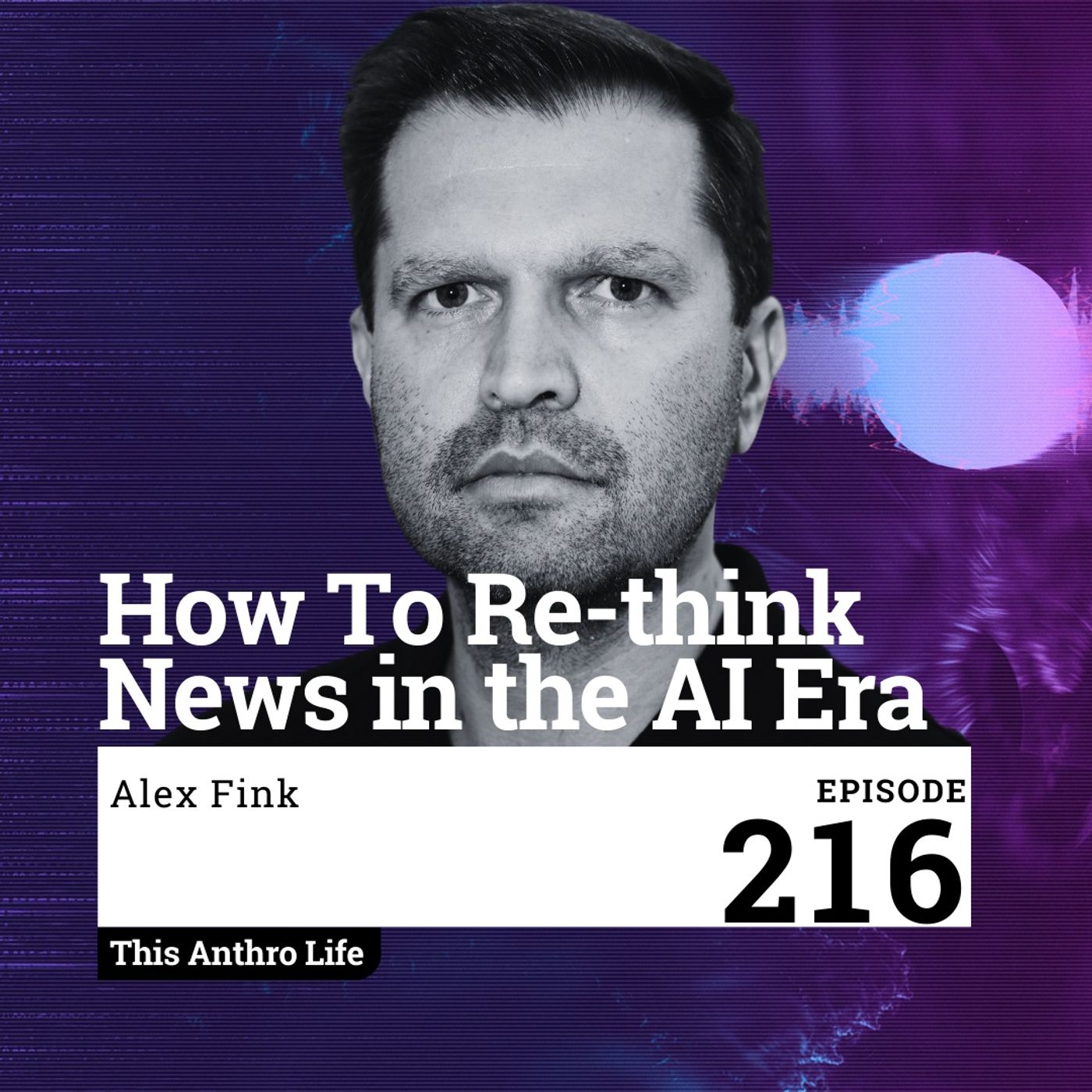
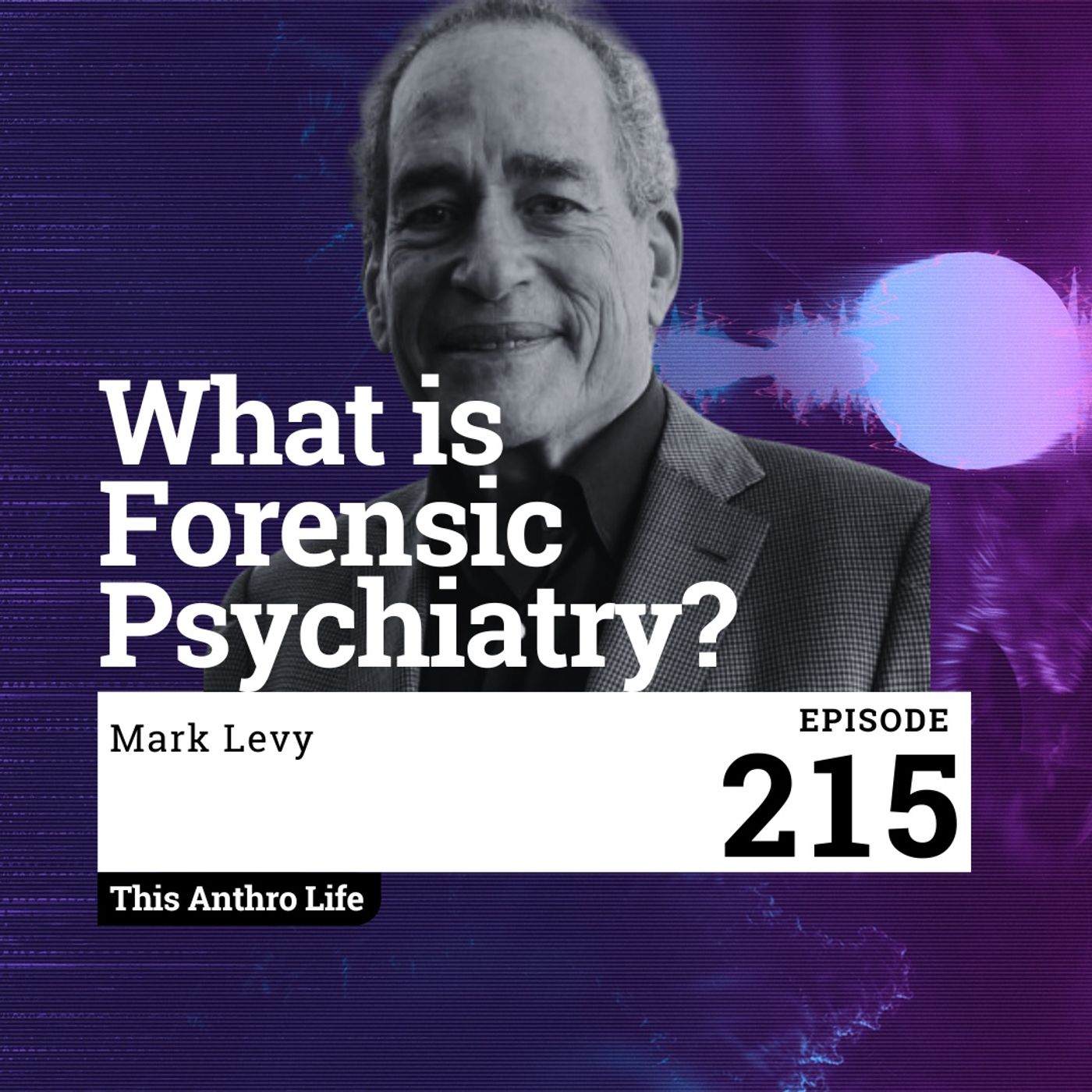







A truly fascinating Anthropology podcast. The subject matter goes beyond what 'we' may think is anthro related. I really suggest giving this show a listen to. Even if you don't find interest every episode topic-- look the list over & you'll discover many that do.